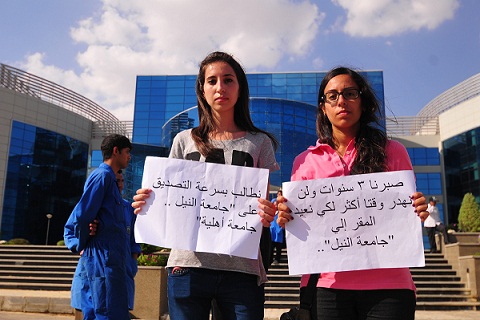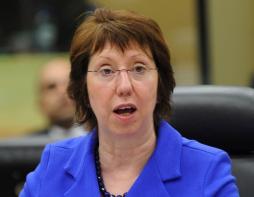
Audiences in Egypt scour the city looking for film screenings that do not include 3D gimmicks and local low comedy offerings. Screenings at art and cultural centres have entertained audiences with international and local indie offerings, away from screaming children and the sound of popcorn being chewed, but most are only temporary openings. Zawya, the first art house cinema in Egypt, has changed this.
We went to the opening of Zawya, a cinema that says it is for the “movies that don’t get theatrical releases”. Zawya is at the renovated Odeon cinema in downtown and the first night saw the screening of Wadjda by Saudi filmmaker Haifa Al-Mansour.
The decision to open Zawya came as an expansion of the Euro film panorama in 2013. The core selection of European films had no options to be seen in Cairo beyond the nine days of the panorama and audiences had no access for art house cinema. Luckily, each film shown at Zawya will be screened for at least a week and for the price of EGP 20. Though the renovated cinema is not in a condition that audience members are used to encountering in expensive mall cinemas, Zawya has an irresistible charm, with its upwardly-positioned screen and its nostalgic locale.
Wadjda tells the heartwarming story of a young girl from Riyadh who wants a bicycle and will stop at nothing to achieve her dream of beating her male friend in a race, despite Saudi norms and traditions which look unfavourably upon girls riding bicycles. The film is entirely in Arabic and is shown with English subtitles.
For many, the film grabbed attention for its many firsts. It is the first film shot entirely in Saudi Arabia, the first film the country has chosen to submit for the Academy Awards, the first film by a Saudi Arabian female filmmaker, and one of the few made that are at some level critical of Saudi Arabian society.
Wadjda is a simple story of a rebellious girl who wants a bicycle and faces the most unfair of odds. The film is less about the struggle of women in Saudi Arabia as it is about Wadjda’s own struggle and her unyielding resolve to achieve her dream. The plot follows her as she tries to make money by any means necessary: selling bracelets to school friends, making mixed tapes, doing favours, and finally entering a school Quran recital competition as a means to buy her bicycle.
The next film to be featured on the Zawya screen will be The Past, by Asghar Farhadi, the same director who brought you the Oscar winning “A separation”. Despite only being available for one more day before Zawya moves on, Wadjda is worth seeing. Not only because it is historically important as an example of an excellent film coming out of a place with no cinematic industry to speak of, but because it is a moving story that will make you laugh a lot and possibly cry a little through the characters’ own bittersweet lives in Al-Mansour’s well crafted narrative.



